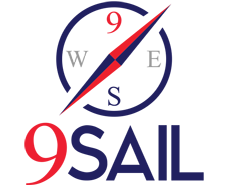What We Do
We provide law firms with cutting-edge marketing strategies that drive meaningful results. Our services include:
Our Brand Promises
We integrate seamlessly with your team to align marketing strategies with business goals.
Every decision we make is focused on ROI and sustainable firm growth.
Our data-driven approach delivers actionable recommendations that impact your bottom line.
You always know what we’re doing, why we’re doing it, and how it benefits your firm.
We create strategic, compliant, and engaging content that resonates with your audience.
Our Culture
At 9Sail, we hire professionals who are results-driven, process-oriented, and passionate about their work. We foster a team environment where collaboration, continuous learning, and personal fulfillment are priorities. Our culture is built on accountability, innovation, and a commitment to excellence—because great people drive great results.
Meet Our Team
We are a dedicated team of digital marketing experts, strategists, and content specialists committed to helping law firms succeed. Our team brings a wealth of experience and industry knowledge to every client engagement.
Let’s Connect
If you’re looking for a strategic marketing partner to elevate your firm’s online presence, contact us today. Let’s build something great together.

